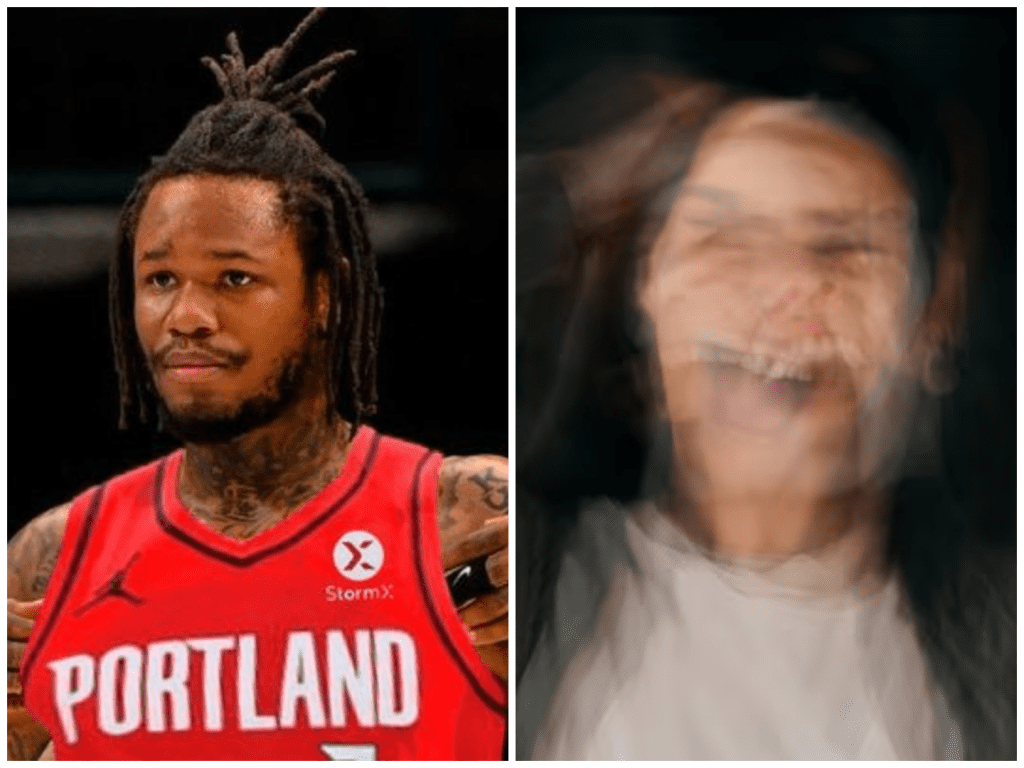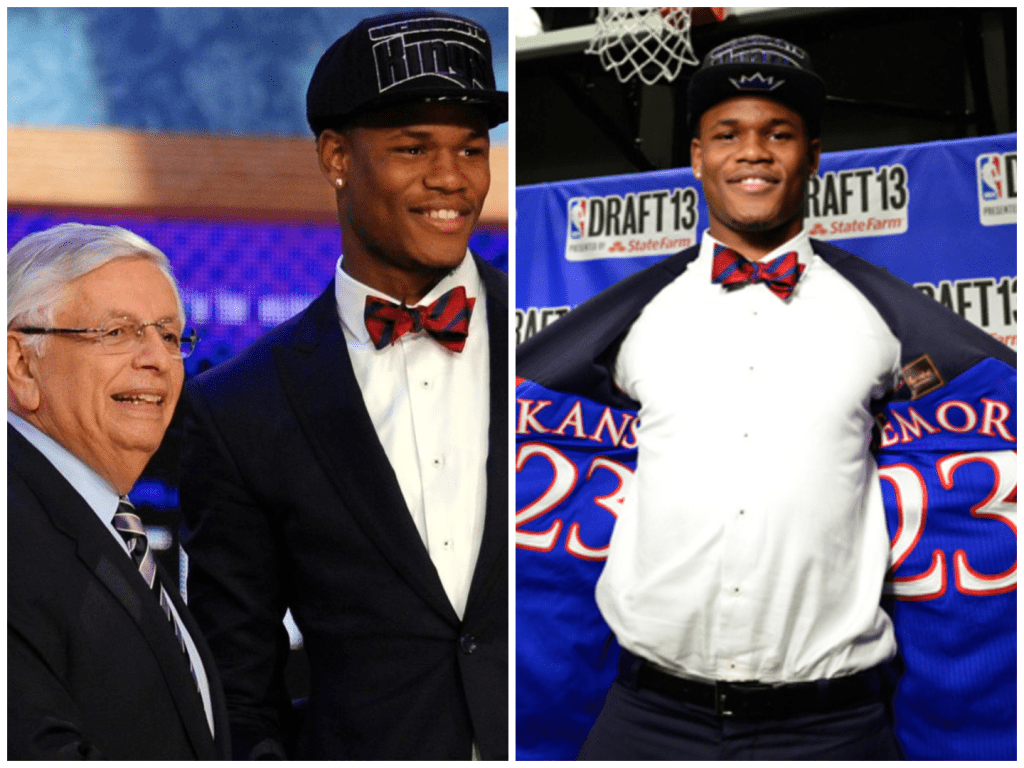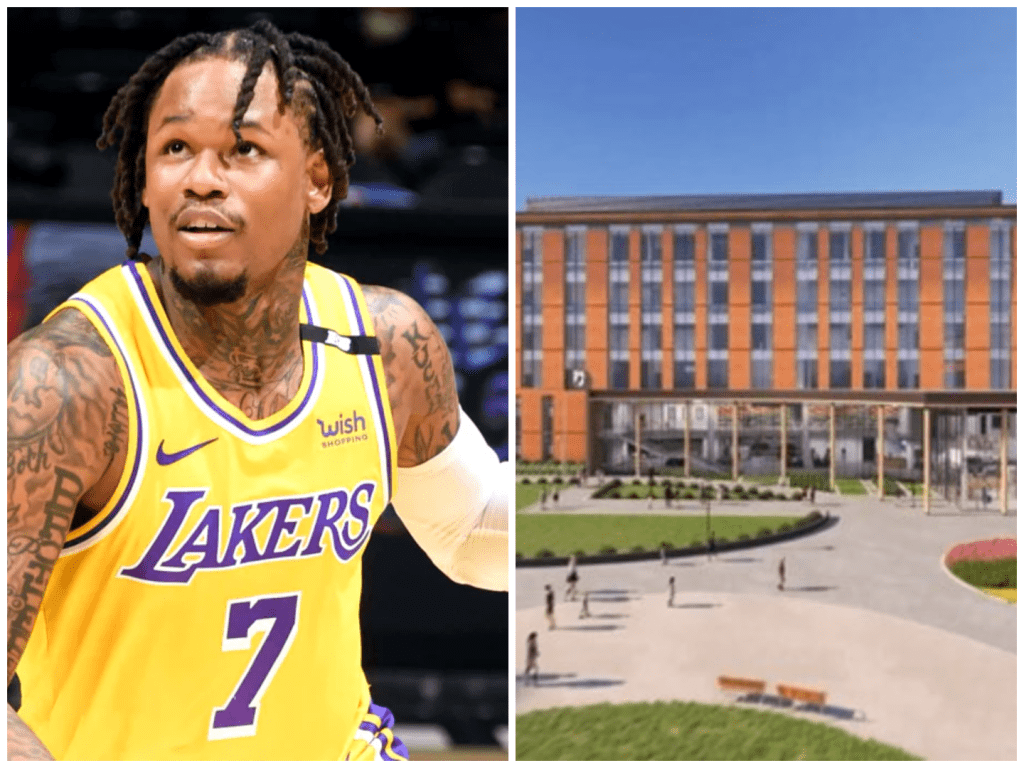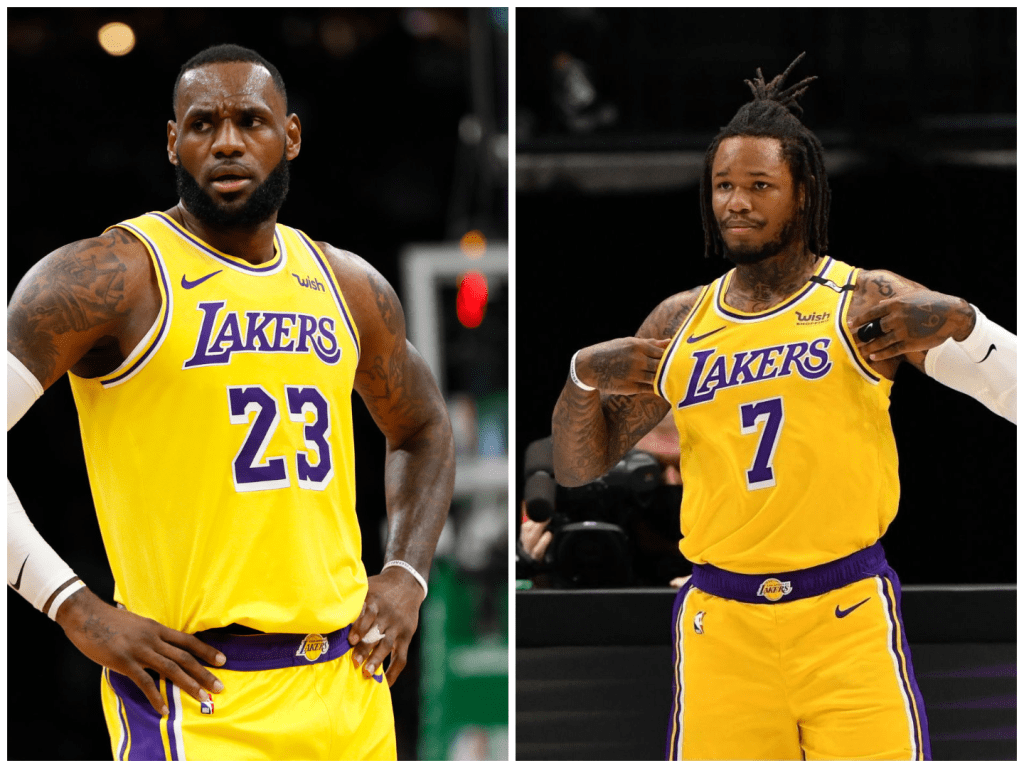Ben McLemore Was Just Convicted in Oregon — But the League Has Yet to Speak Out

There was a time when Ben McLemore’s name echoed through packed NBA arenas, not courtrooms. His athleticism, his jump shot, and his potential had once placed him among the league’s most promising young guards. From the moment he was selected as the 7th overall pick in the 2013 NBA Draft by the Sacramento Kings, McLemore was seen as a future star—another high-flying, sweet-shooting scorer coming out of Kansas with dreams as bright as the lights on draft night. For years, his path zigzagged across the league, from starting roles to bench rotations, from playoff rosters to overseas contracts. But through all the movement and inconsistency, he remained a recognizable face in the basketball world, someone who had played with legends, worn the jerseys of iconic franchises, and scored in some of the sport’s biggest arenas.

Now, in July 2025, Ben McLemore’s name is trending again—but for reasons far removed from anything that happens on a basketball court.
The story begins in Lake Oswego, Oregon, at a house party in 2021. Back then, McLemore was still active in the league, playing for the Portland Trail Blazers after stints with the Lakers and Rockets. The party was hosted at the home of another NBA player. By all appearances, it was a typical offseason gathering—loud music, drinks, teammates, and friends. But what allegedly happened that night would lead to a criminal case, a lengthy investigation, and a courtroom trial that concluded in July 2025 with a guilty verdict.
According to prosecutors, the victim was a 21-year-old woman who had been invited to the party and became heavily intoxicated. During the trial, they presented evidence that the woman was incapacitated—unable to consent or even remain conscious for much of the evening. Witnesses said she had been drinking throughout the night and was later seen passed out. Prosecutors introduced photographic evidence showing her in a state of unconsciousness. In that condition, they argued, she could not give consent to any physical activity that followed. McLemore was accused of engaging in non-consensual sexual contact with her while she was in that state.
The trial lasted eleven days, and the defense maintained that the encounter had been consensual. McLemore’s attorneys argued that both parties had been drinking and that there had been no criminal intent. But after hours of deliberation, a Clackamas County jury found him guilty on three of four counts: first-degree rape, first-degree unlawful sexual penetration, and second-degree sexual abuse. He was acquitted on one lesser charge but now faces sentencing, scheduled for July 9, 2025.

It’s a stunning development for someone whose career once seemed full of promise. McLemore, now 32, hasn’t played in the NBA since the 2021–22 season, but he remained active overseas, appearing in professional leagues in Turkey, Greece, and China. Though his NBA prime had passed, his name still carried recognition, especially for fans who remembered his highlight-reel dunks and clutch three-pointers. For younger players, he was a veteran presence, someone who had shared locker rooms with the likes of LeBron James and James Harden. He had been through the pressure of playoff basketball, had dealt with media attention and team transitions, and had navigated the highs and lows of professional sports with grace—at least in public.
But the courtroom has no scoreboard. There are no highlight reels in front of a judge and jury. For the past year, as the legal case moved forward quietly, McLemore’s public appearances dwindled. He stayed off the radar, reportedly focusing on his family and personal matters. Few in the basketball world knew what was coming, and when the news broke of his conviction, it shook fans, journalists, and former teammates alike.

The situation also raises bigger questions about the intersection of celebrity, accountability, and justice. McLemore’s case is not the first time an athlete has been involved in legal trouble. The sports world is filled with stories—some proven, some not—about players whose off-court actions brought consequences that overshadowed their achievements. But what makes this case stand out is the timing. The assault occurred in 2021, during a period when conversations about consent, power dynamics, and accountability were reaching new levels in both sports and society. Over the past few years, there’s been a broader push to listen to victims, to believe survivors, and to treat criminal behavior with seriousness, no matter the name attached to it.
McLemore’s conviction came not from social media speculation but through a formal judicial process. The evidence was presented in court. Witnesses testified. A jury of Oregon residents listened, deliberated, and rendered a verdict. It wasn’t instant. It wasn’t viral. It was deliberate. That matters. Because whether you believe in McLemore’s guilt or not, what happened in that courtroom was a legal conclusion reached through due process. And that conclusion now shapes his future.
Sentencing will determine how long McLemore spends behind bars. Oregon law mandates serious penalties for the crimes he was convicted of, particularly first-degree rape and unlawful penetration. While exact sentencing guidelines vary, the potential for a lengthy prison term is very real. What began as a night of celebration four years ago has turned into a legal crisis with lifelong consequences.
For the basketball community, it’s a moment of reflection. Ben McLemore isn’t a superstar, but he was well-known. He was talented. He represented the dream that many young athletes chase—a path from college stardom to the NBA spotlight. Now, that dream has ended in a way no one could have predicted. His journey is a painful reminder that choices have consequences, that actions taken off the court can dismantle everything built on it.
It also underscores the importance of believing and protecting survivors. The woman at the center of this case—whose name has not been released to protect her privacy—chose to pursue justice in a situation that no doubt brought emotional trauma, media scrutiny, and painful memories. It takes courage to come forward, especially when the accused is someone in the public eye. The verdict is not just a judgment on McLemore; it’s a statement that every voice matters, regardless of status or fame.
The NBA has not publicly commented on the case, perhaps because McLemore is no longer an active player. Still, the league’s recent focus on player conduct, especially in light of other high-profile incidents, suggests that it will not turn a blind eye. Former teammates and coaches have remained largely silent, offering no public statements so far. The basketball world, it seems, is processing this in real time, just like the rest of us.
For fans who watched McLemore’s journey from draft night smiles to playoff runs in Houston and Los Angeles, this ending feels surreal. There was never any warning sign that his career would be followed by criminal headlines. But life doesn’t always offer previews. Sometimes the fall comes suddenly, without explanation, and we’re left wondering how someone with so much ahead of them ends up facing prison instead of the next season.
There will be appeals. There may be further legal developments. But the conviction stands—for now, it defines the legacy of a once-promising athlete whose choices led him to a place no player ever imagines. And as we wait for sentencing, for more details, for clarity, the reality sets in: the story of Ben McLemore is no longer about basketball. It’s about consequence. It’s about accountability. And it’s about a moment that changed everything.